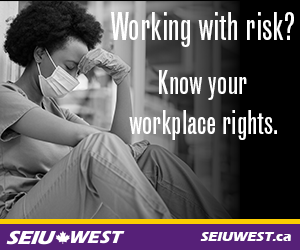Don’t believe the business lobby. Tax reform helps Canadians
Province | by Gregory Beatty
“Class warfare!” is a classic Marxist battle cry. Lately, though, numerous conservative politicians, chambers of commerce and financial columnists have taken it up.
It seems perverse, since Marx describes a ruthless capitalist class waging economic war on an exploited labour class. Have they finally seen light, you ask, and are sounding a clarion call for change?
Uh, no.
Instead, they’re whining about proposed federal small business tax changes to tighten loopholes that provide high income professionals who incorporate with generous tax advantages compared to their non-incorporated colleagues and other Canadian taxpayers.
Yes, the tax losses (estimated at $4 billion annually for the feds, with provinces losing billions more) are small potatoes compared to the mega-billions lost to off-shore tax havens like those revealed in the 2013 Panama Papers and recent Paradise Papers leaks. But it’s still significant.
From the start, too, the Liberals’ proposals were narrowly targeted, with less than three per cent of small businesses at the top end of the $500,000 income threshold expected to be impacted.
So, really, the cries of class warfare seem a little “rich”.
“The only time discussion of class warfare arises is when those with the most wealth and power start to be critiqued,” says Peter Gilmer of Regina Anti-Poverty Ministry. “Then suddenly it’s class warfare. But when low-income people have their benefits cut and see austerity measures put in place, that’s rarely discussed as class warfare.”
Saskatchewan is a case in point, says Gilmer.
“During the boom, those on fixed incomes actually had their lives get worse because the costs of many things, especially rent, went up. Then, when there was a downturn, the first place the government looked to make cuts was on those who were hurt by the boom.”
Michael Truscello, a Calgary academic and co-editor with Ajamu Nangwaya of a 2017 book on social activism with the provocative title Why Don’t the Poor Rise Up?, agrees with Gilmer. “Capitalists deploy the term ‘class warfare’ the way Donald Trump refers to ‘fake news’. They are simply referring to something they don’t like, but the words ring hollow when used by the class conducting the warfare.
“Capitalism exploits workers and the natural world so completely that the richest one per cent now own half the world’s wealth, and over 15,000 scientists recently warned humanity that we’re causing a mass extinction,” says Truscello.
“Yet, somehow, the rich are claiming persecution?”
As Marx’s theory demonstrates, the idea of class warfare has long been with us. From the post-war Baby Boom until the late-1970s, though, progressive tax rates, controls on corporate concentration and financial chicanery, and expansion of the social safety with heavy investment in health and education, did improve many people’s quality of life.
Then came the Reagan/Thatcher revolution. Many of those gains have been rolled back. Inequality is approaching levels not seen since the Great Depression, and more and more people are feeling the heat.
“If we look at who is living in poverty today, it’s roughly a 50/50 split between those who are not able to be in the labour market and those who are in low-wage and precarious employment,” says Gilmer.
Similar to the campaign waged against the small business tax measures, which accused the Liberals of attacking mom ’n’ pop businesses, farmers, tradespeople and whatnot, the standard bearers of this neoliberal agenda, with their abundant resources, have been extremely effective in getting their message out.
“What’s been most masterful, I think, about the campaign that’s been waged over the last 35 years is that they’ve been able to identify their interests as being in the best interests of us all,” says Gilmer.
“Trickle down” is the catchphrase that’s been used to describe wealth at the top filtering down to lower income people. It sounds half-assed reasonable (maybe), but rising child poverty rates, record high debt-to-income ratios, an eroding social safety net, crumbling public infrastructure and more prove it just doesn’t happen.
Former President (and current accused groper) George Bush Sr. once called trickle-down “voodoo economics”, and he was hardly a Marxist.
“Avoiding taxes through legal loopholes is now standard practice,” says Truscello. “To avoid paying the existing tax rates, which are already at record lows across the G8, the rich and their corporations have bought political acquiescence and rigged the system to normalize tax havens.
“Large Canadian corporations have over 1,000 subsidiaries in offshore tax havens,” Truscello says. “This adds up to about $15 billion in lost tax revenue. Canada, for various reasons, already does not collect almost $50 billion in taxes annually.
“Meanwhile, health care, public transit, education and other public services go underfunded.”
Rather than invest in proactive support measures, governments too often funnel precious resources into reactive measures such as police, prisons and emergency health and welfare services — with predictably poor results.
“The Poverty Costs campaign has calculated a $3.8 billion price tag for the cost of poverty in Saskatchewan,” says Gilmer. “The cost of ending legislated poverty and moving everyone above the poverty line would be in the $400 to $600 million range.
“Regardless of questions of social justice and morality, reducing inequality and poverty is simply fiscally responsible.”
So next time you hear cries of class warfare from Canada’s privileged elite, remember who the true victims are. Deal?





